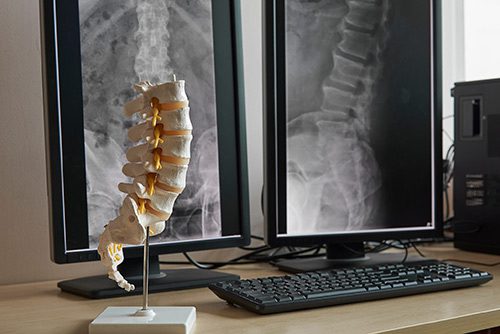Back Pain Doctor Miami
Back pain is the most common diagnosis that Dr. Carter encounters in her practice.
What are the risk factors or causes of back pain?
The list of potential causes of back pain is long. Sometimes back pain can result from a fall, an accident, arthritis, improper exercise technique, occupational hazards, not enough of the right exercise. Often back pain occurs from poor sitting posture. Poor sitting posture can impose significant stress on the spinal structures. Overtime this stress can lead to breakdown of anatomical structures in the lower back and eventually cause pain. Smokers are also at higher risk for back pain. Sometimes back pain happens without an obvious identifiable cause.
What parts of the back are responsible for back pain?
There are several structures in and around the spine that can cause back pain, including:
- Herniated discs
- Degenerative discs
- Inflamed nerves
- Inflamed or arthritic facet joints
- Inflamed sacroiliac (SI) joints
- Muscle spasms or muscle strain
- Sprained/Strained ligaments or tendons
- Spinal fractures (spondylolysis)
- Spinal instability
What are the symptoms of back pain or sciatica?
Symptoms of back pain can range from anywhere from a dull ache to severe, shooting pain. Usually when the nerves are inflamed or “pinched”, radiating, shooting pain can occur in the arms or legs. Arm or leg numbness, tingling or weakness can also occur when the nerves are inflamed. When the pain occurs with certain activities or positions, it can give a clue as to what structure is causing the pain

When should I see a back doctor for
back pain?
- Back pain that does not improve within a week
- Back pain that is very severe
- Back pain that gets better, but keeps coming back
- When there is radiating leg pain, numbness, tingling or weakness
How is the cause of back pain diagnosed?
A good spine specialist can usually identify the cause of back pain simply by obtaining a good history and performing a thorough physical exam. Imaging studies like an x-ray or MRI can be helpful at ruling out more serious causes of back pain. An MRI can help with planning spinal injection procedures for back pain or nerve pain. CAT scans are sometimes used if a spinal fracture is suspected. Sometimes nerve tests like an EMG can help differentiate a local nerve problem from a condition involving the spinal nerves. EMGs can also help detect actual nerve damage.

What are treatments for back pain?
The treatment for acute back pain is usually relative rest, ice, temporary use of a simple back brace and maybe some over-the-counter analgesics like Tylenol or Advil. For pain that lingers beyond a week, prescription anti-inflammatory medications are often a doctor’s first-line medication of choice. If there is a nerve involvement, then medications like gabapentin or pregabalin are sometimes used. Opioids like codeine, morphine or oxycodone should only be used for very severe pain and only for a few days.
Correction of the underlying causes and a proper exercise program are very important. Sometimes spinal injections are used to reduce the inflammation for very severe pain or pain that does not improve with more conservative treatments. Steroids or platelet rich plasma are sometimes used to address back pain or nerve pain.
How can I prevent low back pain?
Identifying the cause of the back pain is important. Once you experience an episode of low back pain, the chances of you having another episode within a year’s time are high. A good back doctor can help you identify triggers. Some steps you can take include using good sitting posture with a quality chair with back support. Consider an adjustable height workstation. Practice good sleeping posture and use a quality, supportive mattress. Daily stretching and a regular strengthening program, especially for your core, are very important. Use proper lifting technique by hips and knees – not your back. If you are a smoker, stop smoking.
Why choose Dr. Carter as my back doctor?
Listen to Dr. Carter explain why you should get a NON-SURGICAL opinion for SPINE PAIN
Dr. Carter has been treating back pain and spinal disorders non-surgically for over 20 years, beginning with a competitive interventional spine and sports medicine New York-based fellowship. She spent 17 years teaching residents and medical students the evaluation and management of back pain at Columbia University – College of Physicians and Surgeons. Dr. Carter is a top back doctor and is considered an expert in her field. Ready to start your recovery journey? Contact us!

Our Services
Dr. Carter has an excellent safety record and has taught injection techniques all across the country. Her expertise spans multiple areas including back and spine pain, joint and muscle plan, as well as PRP injections, and stem cell therapy injections.
Dr. Carter’s regenerative medicine protocols (platelet rich plasma and stem cell therapies) are backed by the latest scientific data. Her pre-and post injection rehab programs and treatment plans are unique and specifically tailored to the individual patient’s goals and objectives.
Fitness and sports enthusiasts of all levels, from weekend warriors to professional athletes have benefited under Dr. Carter’s care. Performing artists with career-threatening injuries have been able to return to their profession with Dr. Carter’s holistic approach to treatment.


